A Comprehensive Guide to Federal Holidays in 2025 and 2026
Related Articles: A Comprehensive Guide to Federal Holidays in 2025 and 2026
Introduction
In this auspicious occasion, we are delighted to delve into the intriguing topic related to A Comprehensive Guide to Federal Holidays in 2025 and 2026. Let’s weave interesting information and offer fresh perspectives to the readers.
Table of Content
A Comprehensive Guide to Federal Holidays in 2025 and 2026

The United States observes a number of federal holidays each year, offering opportunities for reflection, celebration, and time away from work. These holidays, established by Congress, recognize significant historical events, cultural traditions, and important figures in American history. Understanding these holidays and their significance allows for a deeper appreciation of the nation’s heritage and provides valuable insights into its cultural fabric.
Federal Holidays in 2025
2025 presents a diverse array of federal holidays, each commemorating a distinct aspect of American history and culture.
January
- New Year’s Day (Tuesday, January 1): Marking the beginning of a new year, this holiday offers a chance to reflect on the past and look forward to the future. It is a time for setting resolutions and embracing new beginnings.
February
- Martin Luther King Jr. Day (Monday, January 20): Honoring the legacy of Dr. Martin Luther King Jr., a pivotal figure in the Civil Rights Movement, this holiday underscores the ongoing struggle for equality and social justice. It serves as a reminder to continue working towards a more just and equitable society.
May
- Memorial Day (Monday, May 26): A day dedicated to remembering and honoring those who died while serving in the United States Armed Forces. It is a somber occasion for reflecting on the sacrifices made by service members and their families.
June
- Juneteenth National Independence Day (Friday, June 19): Celebrating the emancipation of enslaved African Americans in the United States, this holiday acknowledges the historical significance of this event and the ongoing fight for racial equality. It is a day for reflecting on the nation’s history and its commitment to freedom for all.
July
- Independence Day (Wednesday, July 4): Commemorating the signing of the Declaration of Independence, this holiday celebrates the birth of the United States and its commitment to liberty and self-governance. It is a time for parades, fireworks, and gatherings with family and friends.
September
- Labor Day (Monday, September 1): A day to celebrate the contributions of American workers and the labor movement. It recognizes the importance of workers’ rights and the collective efforts that contribute to the nation’s prosperity.
October
- Columbus Day (Monday, October 13): This holiday, observed on the second Monday of October, commemorates the arrival of Christopher Columbus in the Americas. However, it is important to acknowledge the complex history surrounding this event and the impact it had on indigenous populations.
November
-
Veterans Day (Wednesday, November 12): A day to honor all veterans who served in the United States Armed Forces. It acknowledges their sacrifices and contributions to the nation’s security and freedom.
-
Thanksgiving Day (Thursday, November 27): A holiday traditionally celebrated with a large meal and gathering with family and friends, Thanksgiving commemorates the first harvest feast shared by European settlers and Native Americans. It is a time for gratitude and reflection on the blessings of the past year.
December
- Christmas Day (Wednesday, December 25): A widely celebrated religious holiday, Christmas commemorates the birth of Jesus Christ. It is a time for families to gather, exchange gifts, and celebrate the spirit of the season.
Federal Holidays in 2026
The federal holidays in 2026 follow a similar pattern, with some dates shifting due to the calendar year.
January
- New Year’s Day (Thursday, January 1): This holiday marks the beginning of a new year, offering a chance to reflect on the past and look forward to the future. It is a time for setting resolutions and embracing new beginnings.
February
- Martin Luther King Jr. Day (Monday, January 19): Honoring the legacy of Dr. Martin Luther King Jr., a pivotal figure in the Civil Rights Movement, this holiday underscores the ongoing struggle for equality and social justice. It serves as a reminder to continue working towards a more just and equitable society.
May
- Memorial Day (Monday, May 25): A day dedicated to remembering and honoring those who died while serving in the United States Armed Forces. It is a somber occasion for reflecting on the sacrifices made by service members and their families.
June
- Juneteenth National Independence Day (Saturday, June 19): Celebrating the emancipation of enslaved African Americans in the United States, this holiday acknowledges the historical significance of this event and the ongoing fight for racial equality. It is a day for reflecting on the nation’s history and its commitment to freedom for all.
July
- Independence Day (Friday, July 4): Commemorating the signing of the Declaration of Independence, this holiday celebrates the birth of the United States and its commitment to liberty and self-governance. It is a time for parades, fireworks, and gatherings with family and friends.
September
- Labor Day (Monday, September 7): A day to celebrate the contributions of American workers and the labor movement. It recognizes the importance of workers’ rights and the collective efforts that contribute to the nation’s prosperity.
October
- Columbus Day (Monday, October 12): This holiday, observed on the second Monday of October, commemorates the arrival of Christopher Columbus in the Americas. However, it is important to acknowledge the complex history surrounding this event and the impact it had on indigenous populations.
November
-
Veterans Day (Friday, November 11): A day to honor all veterans who served in the United States Armed Forces. It acknowledges their sacrifices and contributions to the nation’s security and freedom.
-
Thanksgiving Day (Thursday, November 26): A holiday traditionally celebrated with a large meal and gathering with family and friends, Thanksgiving commemorates the first harvest feast shared by European settlers and Native Americans. It is a time for gratitude and reflection on the blessings of the past year.
December
- Christmas Day (Thursday, December 25): A widely celebrated religious holiday, Christmas commemorates the birth of Jesus Christ. It is a time for families to gather, exchange gifts, and celebrate the spirit of the season.
Understanding the Significance of Federal Holidays
Federal holidays play a crucial role in American society. They provide opportunities for:
- Reflection and Remembrance: Holidays like Memorial Day and Veterans Day encourage reflection on the sacrifices made by those who served in the military, reminding us of the importance of freedom and security.
- Celebrating Cultural Diversity: Holidays like Juneteenth and Martin Luther King Jr. Day recognize the contributions of different communities and highlight the ongoing struggle for equality and social justice.
- Promoting Unity and National Identity: Holidays like Independence Day and Thanksgiving Day bring people together, fostering a sense of national unity and shared identity.
- Creating Opportunities for Relaxation and Recreation: Federal holidays provide a chance for individuals to relax, spend time with family and friends, and engage in leisure activities.
FAQs Regarding Federal Holidays in 2025 and 2026
1. Are federal holidays observed on weekends?
Federal holidays are observed on the designated date, even if it falls on a weekend. If a holiday falls on a Saturday, it is typically observed on Friday, and if it falls on a Sunday, it is observed on Monday.
2. Are all federal holidays observed by all businesses and organizations?
While federal holidays are mandated by law, not all businesses and organizations are required to observe them. Some businesses may choose to remain open, while others may provide employees with paid time off.
3. What are the benefits of observing federal holidays?
Observing federal holidays offers several benefits, including:
- Increased Productivity: Employees who have the opportunity to rest and recharge on holidays tend to be more productive upon returning to work.
- Improved Employee Morale: Recognizing and celebrating federal holidays can boost employee morale and create a sense of belonging within the organization.
- Strengthening Community Ties: Federal holidays often bring communities together, fostering a sense of shared history and cultural identity.
4. Can federal holidays be changed or added?
Congress has the power to establish, change, or add federal holidays. While it is rare for changes to be made, it is possible for new holidays to be added in response to evolving social and cultural values.
5. What are the implications of federal holidays for government services?
Federal holidays generally result in the closure of government offices, including federal courts, post offices, and other agencies. However, some essential services may remain operational, such as emergency services and law enforcement.
Tips for Planning and Enjoying Federal Holidays
- Plan Ahead: With federal holidays often falling on weekends, it is important to plan ahead for travel and other activities to avoid potential delays or crowds.
- Respect the Significance: While federal holidays provide opportunities for relaxation and recreation, it is important to remember the historical and cultural significance behind them.
- Engage in Community Events: Many communities organize parades, festivals, and other events to celebrate federal holidays. Participating in these events can be a great way to connect with others and learn more about the holiday’s history.
- Consider Volunteering: Giving back to the community can be a meaningful way to spend a federal holiday. Volunteer opportunities are available for a wide range of causes and interests.
- Be Mindful of Others: It is important to be respectful of others’ beliefs and traditions during federal holidays. If you are unsure about how to observe a particular holiday, it is always best to ask for clarification.
Conclusion
Federal holidays play a vital role in American society, providing opportunities for reflection, celebration, and unity. Understanding the historical and cultural significance behind these holidays allows for a deeper appreciation of the nation’s heritage and fosters a sense of shared identity. By embracing these holidays and participating in community events, individuals can contribute to the rich tapestry of American culture and strengthen the bonds that unite the nation.
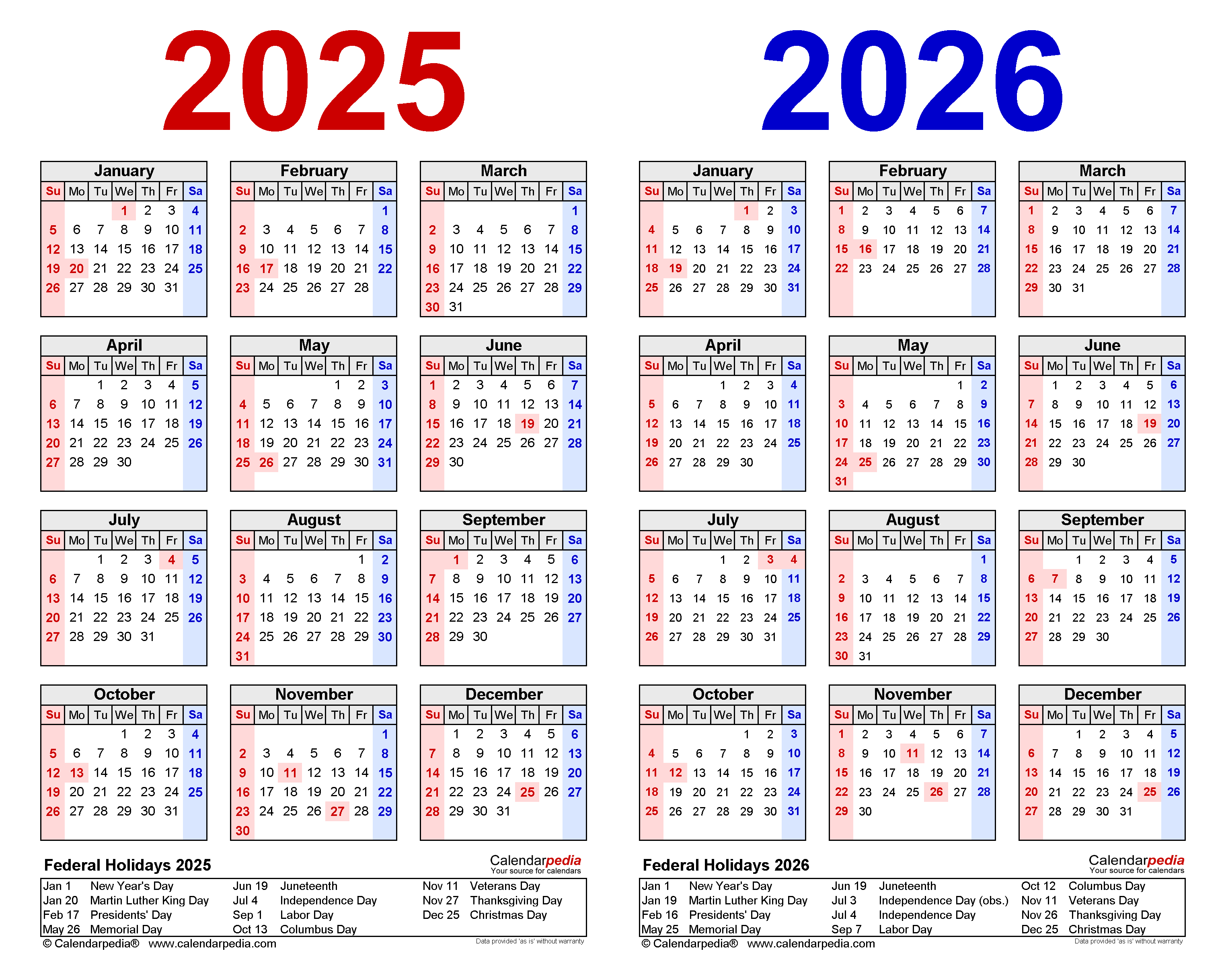


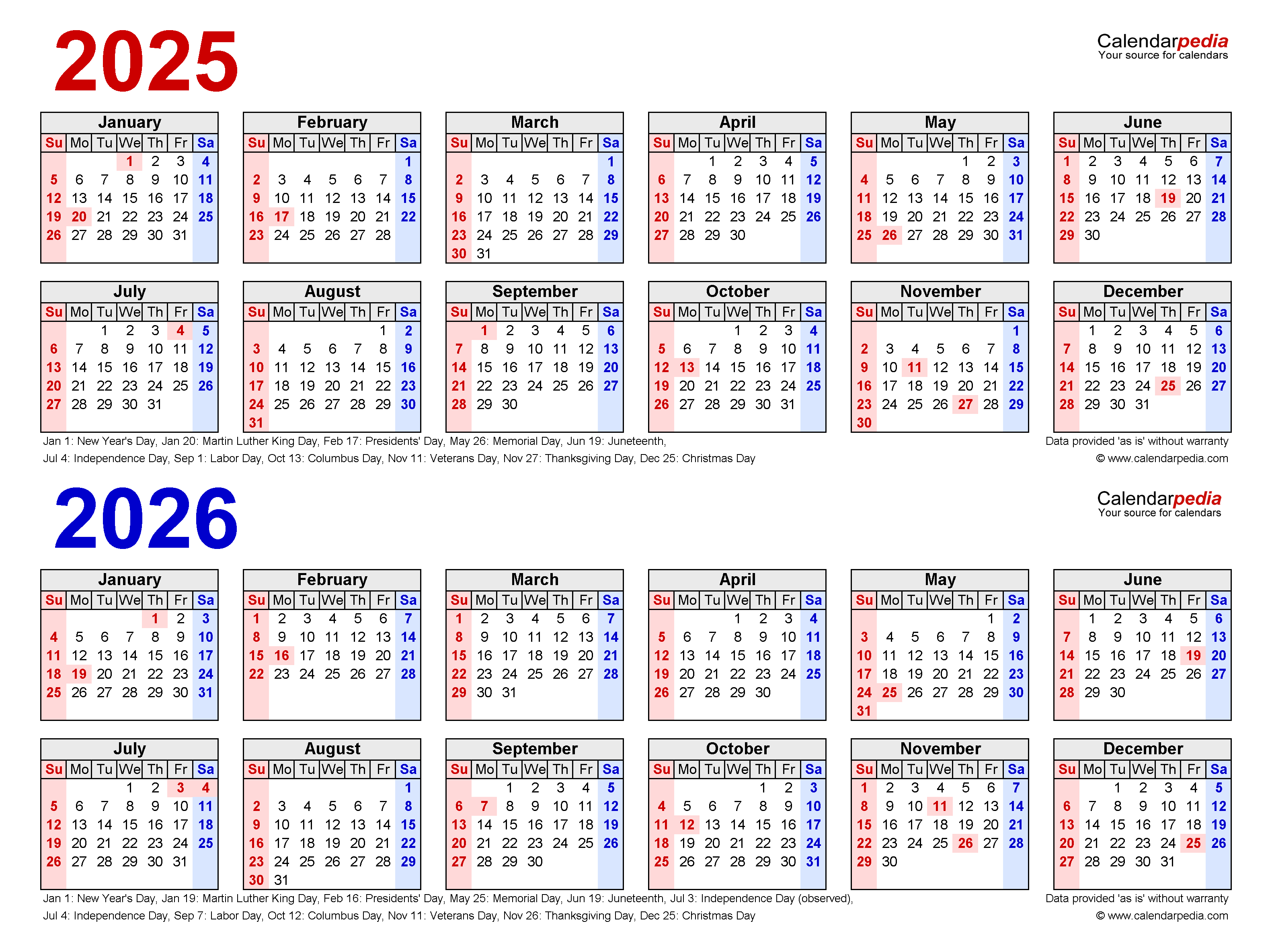
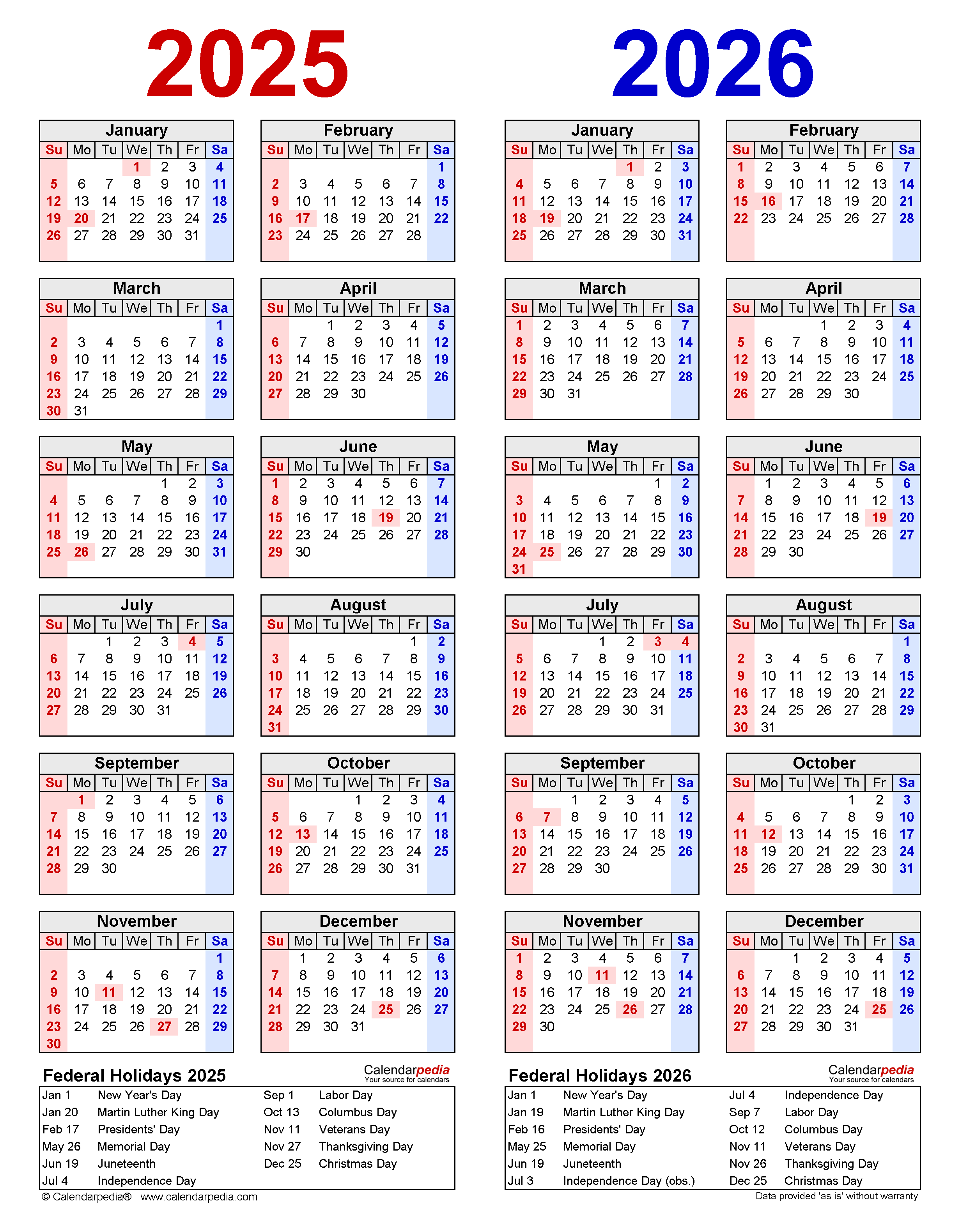

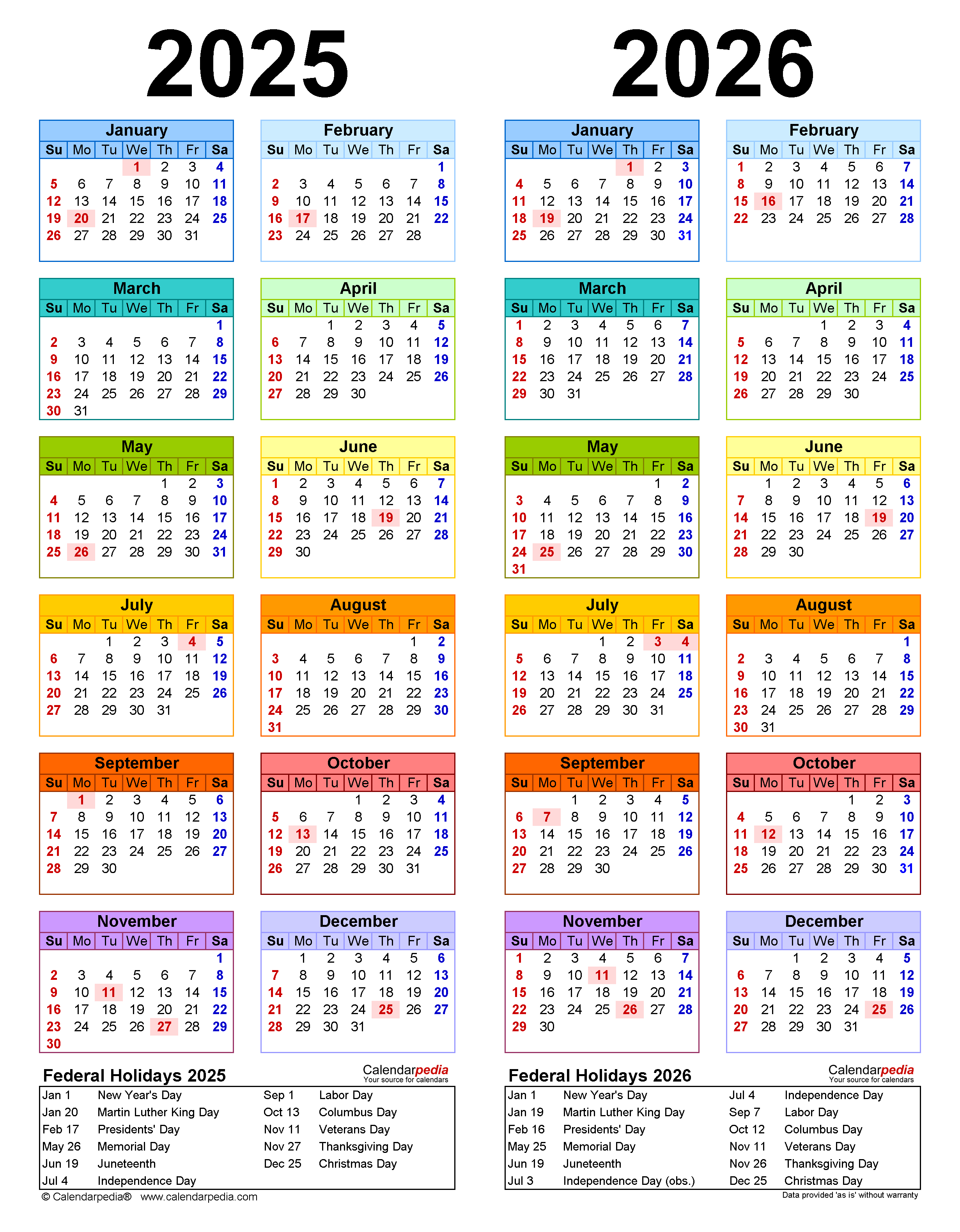
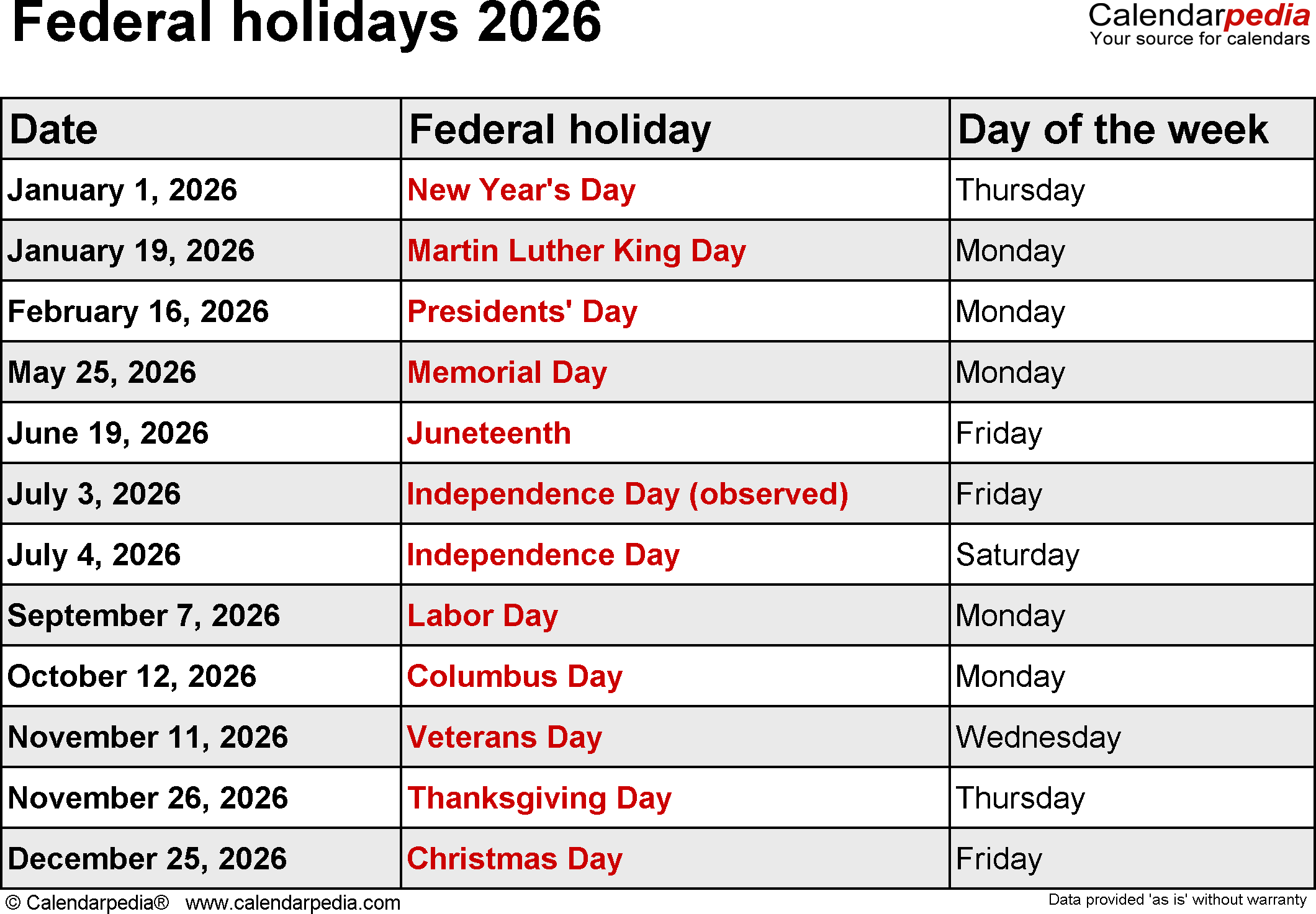
Closure
Thus, we hope this article has provided valuable insights into A Comprehensive Guide to Federal Holidays in 2025 and 2026. We hope you find this article informative and beneficial. See you in our next article!
